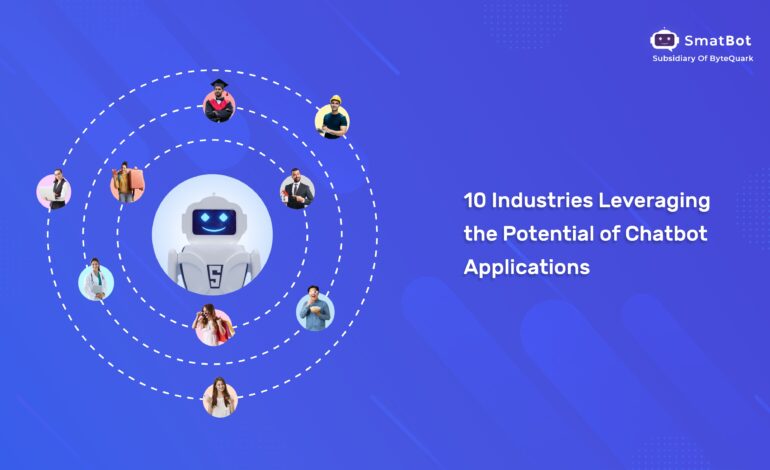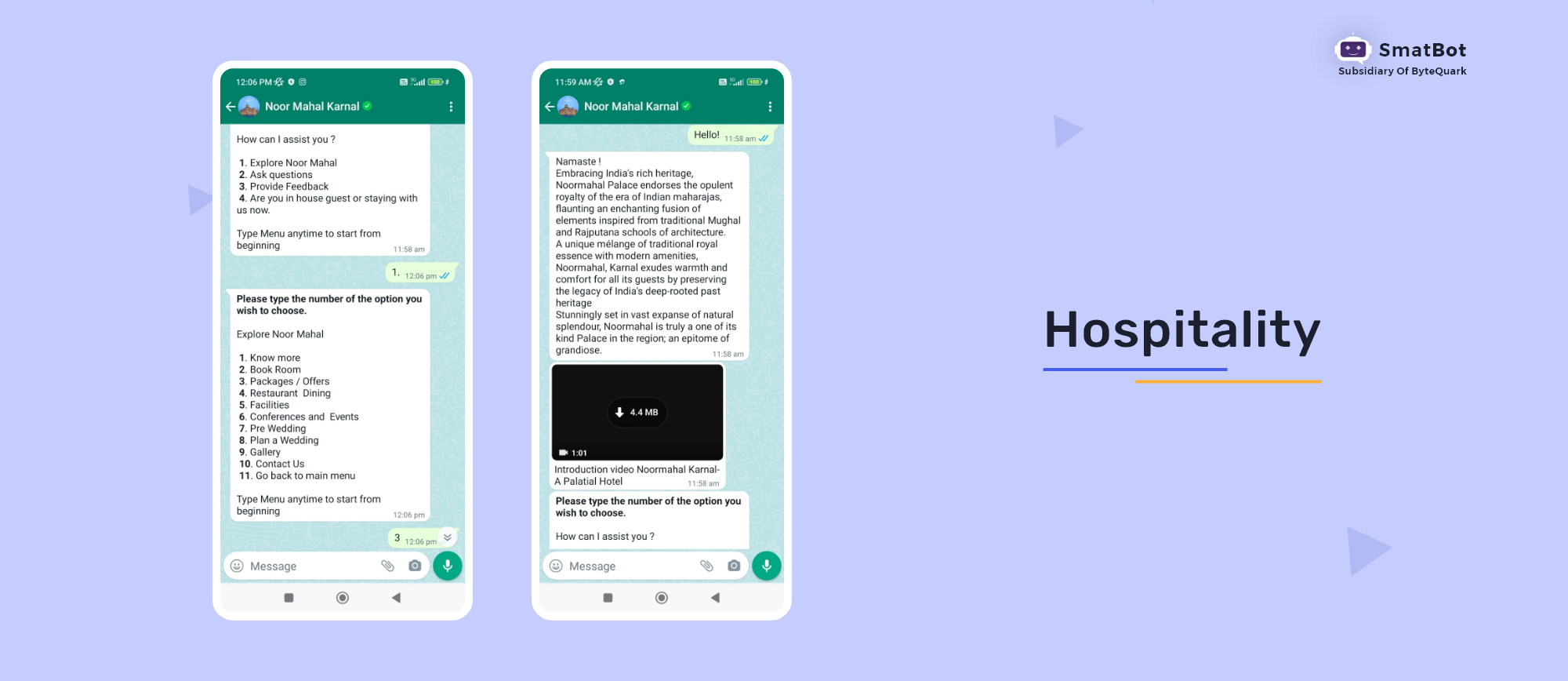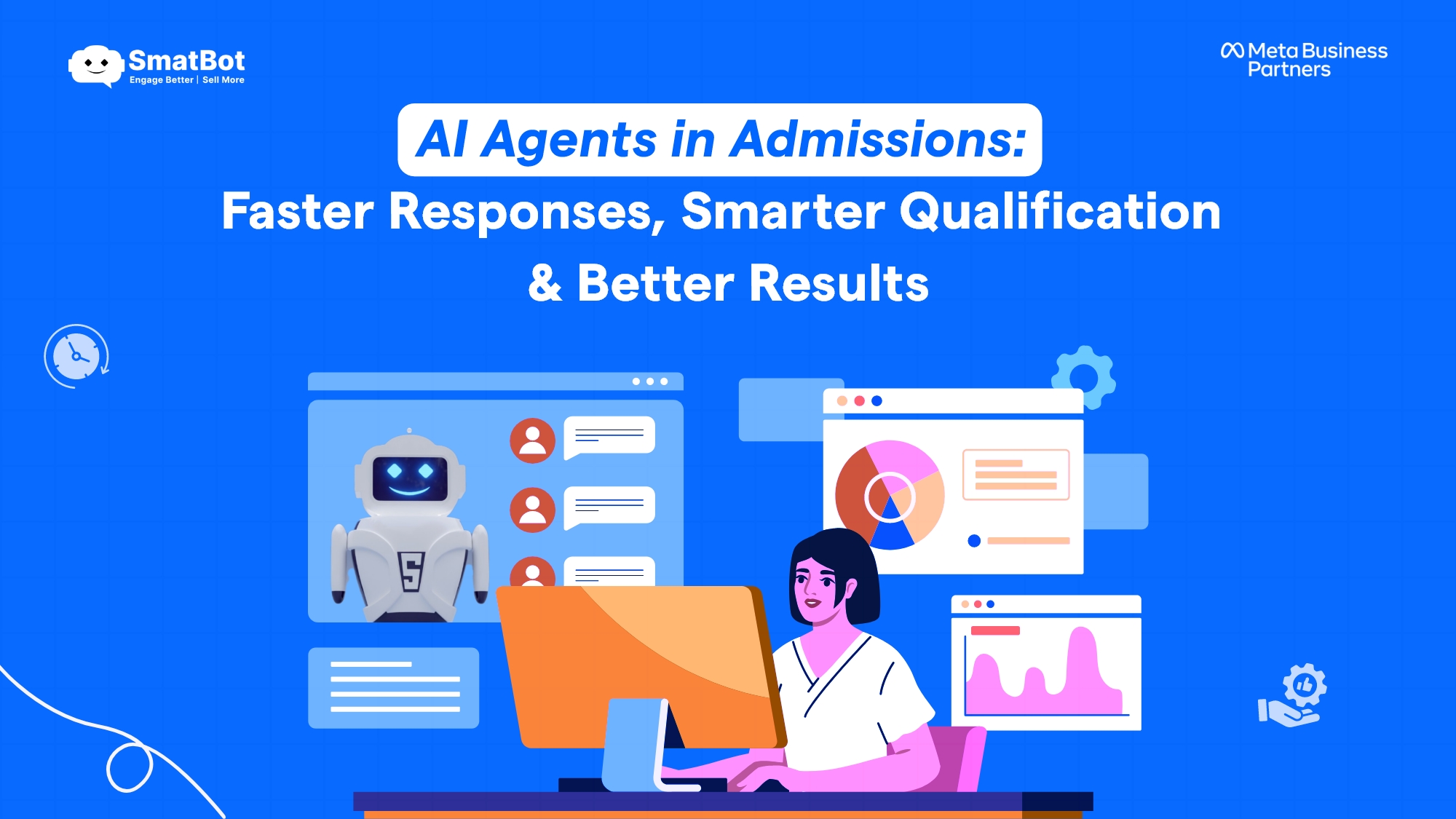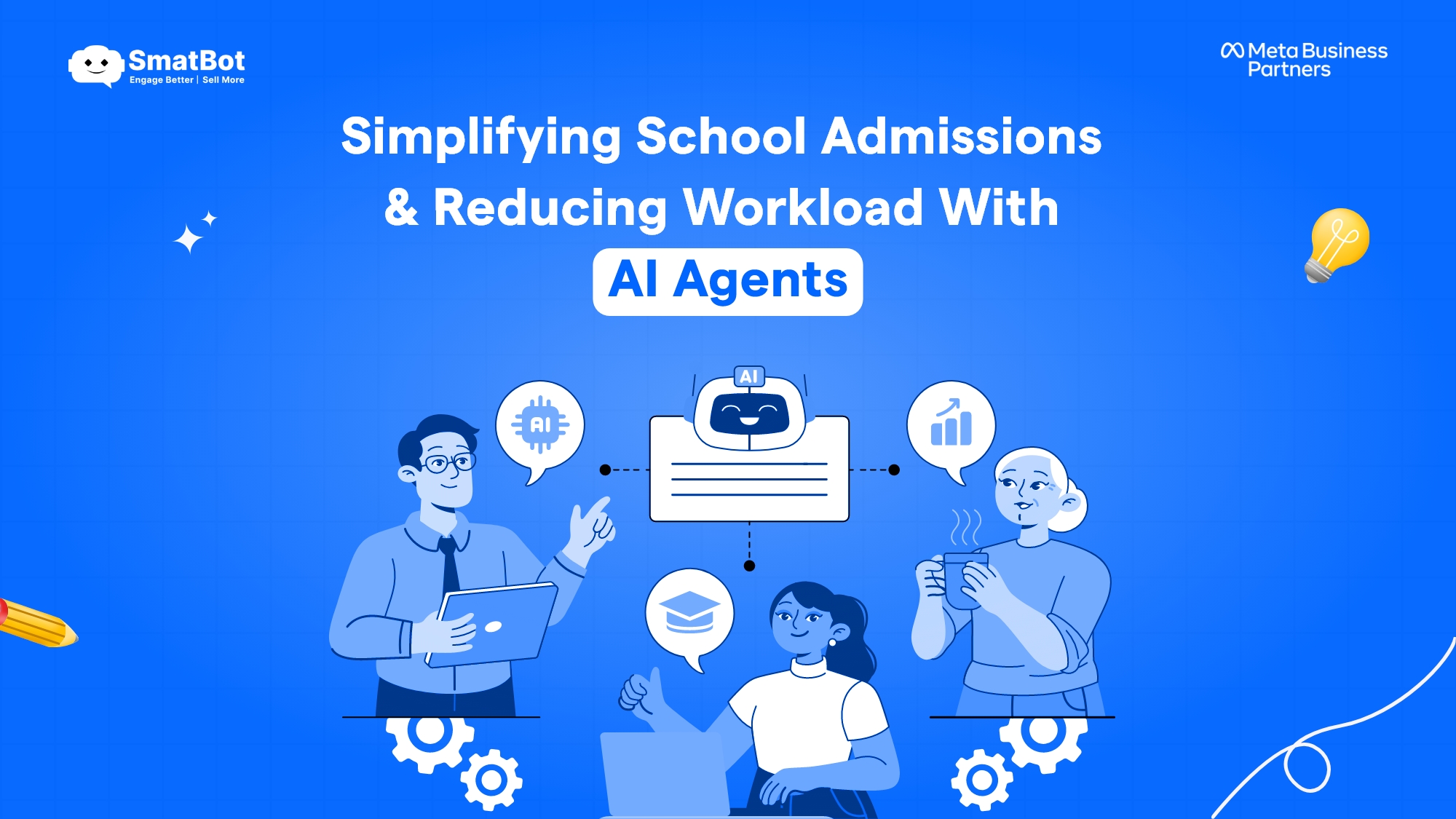10 Industries Leveraging the Potential of Chatbot Applications

Chatbots are gaining popularity in today’s quick-paced, technologically advanced world. It is an effective way for businesses or startups to interact with their customers. These automated messaging systems provide instant support, 24/7 availability, and personalized communication.
While chatbots were initially associated with customer service, they are now used in a variety of industries to streamline business processes. Additionally, they use it to enhance the entire customer experience.
This blog will provide a comprehensive analysis of 10 industries that are leveraging the potential of chatbot applications. We’ll look at how chatbots are changing the way businesses interact with their customers and the benefits of incorporating them into these industries. Whether you are a business owner or a technology enthusiast, this blog will provide you with valuable information.
Chatbots Applications: Industry-Wise Use-Case
Chatbots, also known as conversational AI, are tools that are used across various industries. They contribute to the strong relationship between businesses and their customers.
Below are the top 10 industries leveraging the potential of chatbot applications-
1. Real Estate

It is one of the world’s fastest-growing industries. According to stats, the real estate market was valued at $7063 billion in 2022. But achieving success in this industry is not a walk in the park. Every closed deal in this industry is crucial. The average cost of losing customers in real estate is much higher compared to the e-commerce industry.
A minimum of 100 visitors browse property websites to find out what they offer. Customers visiting these websites can easily become overwhelmed by the numerous listings and struggle to locate what they need, resulting in lost sales for agents and frustration for potential buyers.
Chatbots can help retain visitors to your website. They can assist potential customers in filtering properties based on their requirements, providing information about neighborhoods, and scheduling appointments. But it doesn’t stop there; chatbots can perform a variety of tasks for real estate websites.
By using chatbots, agents can also gather information about their client’s requirements before meeting them in person. This will enhance or increase the chance of your success.
2. Medical

The medical or healthcare industry is one of the busiest industries in the world. Being a doctor is considered one of the most challenging professions due to its demands for absolute focus and attention to detail. This level of demand may affect not only doctors but also nurses and other medical industry employees.
Research has shown that administrative work consumes approximately one-sixth of the average physician’s working hours. Chatbots have the potential to save hospitals and doctors thousands of working hours each year by performing tasks that were previously performed by humans. This not only relieves doctors’ workloads but also makes hospitals more user-friendly for patients.
Chatbots can diagnose patients’ illnesses by gathering information about their symptoms. They can also provide first aid guidance and advise patients on precautions during treatment.
The use of chatbots has not ended here. They can also facilitate tasks such as booking appointments, gathering patient medical histories, and streamlining internal coordination between doctors and other staff. The advantage is that all the data is stored in one place, ensuring easy accessibility and organization.
Beyond medical practice, patients can benefit from chatbots in two significant ways. Firstly, they can receive medication reminders, ensuring they adhere to their prescribed treatment. Secondly, they can monitor their overall health status, enabling them to stay informed and proactive about their well-being.
3. HR

HR, or human resources, is among the most crucial elements that can lead to company success. Many people believe that the HR department only handles hiring-related tasks. However, an HR team is in charge of auditing, legal compliance, policy creation, and a variety of other critical responsibilities.
Every company owner wants their HR team to be as future-forward and proactive as possible. However, traditional HR teams often spend the majority of their time addressing queries and handling internal talent management tasks.
Research has shown that HR teams spend almost 50% of their time answering internal queries and managing talent. These tasks can consume valuable time that could be better utilized for planning, strategizing, talent development, and recruiting.
As your company attracts an increasing number of candidates, the workload on the HR team can become overwhelming.
Chatbots offer a solution by handling routine HR tasks, allowing the HR team to focus on more complex or critical responsibilities. Chatbots can address common queries regarding job openings, training materials, sick leaves, and more.
Moreover, chatbots can also help your HR team handle paperwork, introduce teammates, and more. In short, you can use them to increase engagement, get more accurate data on employee performance, and identify their performance problems.
4. Banking

Advancements in technology have opened up new possibilities for customers to engage in financial activities that were previously impossible. Customers can now easily perform financial activities such as transferring funds, exchanging information, authenticating transactions, and carrying out various financial tasks from the comfort of their own homes with a few clicks.
Thanks to the availability of chatbots around the clock with an impressive 99% uptime, financial institutions are no longer limited to banker’s hours. Chatbots allow them to be present anywhere and anytime, providing continuous support to customers.
Chatbots have a wide range of applications in the banking sector. They can provide information such as balance, transaction history, due payments, etc. Money transfers are also possible with chatbots. You can also perform investment management and credit application tasks with these bots.
Banking is now as simple as sending a text message, thanks to chatbots. They instantly respond to queries, handling everything from basic inquiries to complex tasks. Whether it’s on a website, a mobile app, or a Facebook page, chatbots are there to assist customers seamlessly.
5. Hospitality

Hospitality has seen significant growth over the past few decades. The low worldwide unemployment rate has allowed tourists to afford the luxuries of travel and free time. However, booking a hotel and answering queries might require a lot of hotel staff.
Chatbots can answer frequently asked questions and provide insights and information to customers and companies. This capability enables chatbots to perform multiple tasks independently. Some examples include scheduling meeting rooms, booking cabs, and automatically placing orders for items based on voice and text commands.
Furthermore, chatbots allow customers to book or reserve a hotel room through a payment gateway. Additionally, chatbots can serve as virtual concierges, offering valuable information about local bars and restaurants. They can also provide a built-in customer review model to boost your company’s social media score.
6. Travel

Like other sectors of the economy, the travel sector is expanding significantly. Statistics indicate that the travel sector will surpass $2 trillion this year. Attracting international clients and growing business with them are current priorities for travel and tourism businesses.
A major challenge for the travel industry lies in catering to local businesses. Since your customers are global citizens who can visit your website at any time, it is crucial to maintain constant communication. Failing to engage with your customers for one-third of the day could result in losing two-thirds of potential leads.
Fortunately, chatbots can effectively help address this problem. They can handle inquiries and generate leads 24/7 without taking breaks or compromising customer service. This capability enables chatbots to deliver surprising leads even outside of business hours.
Moreover, these chatbots can provide a wide range of assistance, including visa information, food and drink requirements, safety, and medical information, and even help with selecting and scheduling trips.
In a nutshell, chatbots play a vital role in the travel industry by facilitating continuous customer interaction, generating leads, and offering various services to enhance the overall travel experience.
7. E-commerce

E-commerce is the fastest-growing industry in today’s world. According to statistics, global retail e-commerce sales totaled $4.88 trillion in 2021 in e-retail revenues. However, it is projected to double to $7.39 trillion by 2025.
Indeed, quality products are considered a vital factor in the e-commerce industry. But excellent customer support is another crucial factor in this industry. Traditional methods like phone calls and emails often face challenges, such as difficulty reaching support and long response times.
Forrester Research reveals that 53% of online shoppers abandon their carts if they don’t receive quick responses to their queries. Simply relying on email support or phone calls is no longer sufficient. They expect prompt responses as soon as their questions arise. It’s not feasible to overload web pages with excessive product details.
The best solution is to implement a chatbot on your e-commerce website to provide timely assistance. Integrating a live chat system with the chatbot brings even more value to your business, as it can address customers’ most complex queries in real time, leading to a higher cart retention rate.
They are also equipped to answer frequently asked questions and handle multiple queries simultaneously, even reaching hundreds in number.
Moreover, chatbots can contribute to increased revenue and time savings. They have the capability to shorten the sales cycle, generate more leads, and effectively handle international audiences by supporting multiple languages.
8. Education

Undoubtedly, the education industry is also booming with the increasing literacy rate worldwide. However, a new way of educating your child has evolved with technological advancement called ed-tech. We saw a $2.2 billion investment in the ed-tech industry last year.
Artificial Intelligence plays a pivotal role in education by facilitating personalized and customized learning experiences tailored to individual needs. This is useful as we see a drastic shift toward digital education.
Chatbots are among the most vital tools in the education or ed-tech industry. It enhances the learning process, making it more engaging for students. Simultaneously, it facilitates teachers’ teaching processes, fostering a sense of vision and curiosity among children.
Chatbots are used to collect and process applications in this industry. They are also providing answers to common questions for students and teachers. Chatbots also provide students with details about schedule changes, timetables, and extracurricular activities. Furthermore, chatbots also help in sharing study materials with teachers, parents, and students.
9. Logistics

The logistics industry is among the fastest-growing industries in the world. Statistics show that the logistics industry is expected to surpass 13 trillion euros in 2027. However, it also poses challenges that need to be addressed.
Logistic companies often face the challenge of handling numerous packages and receiving a high volume of repetitive queries each day. Despite sending emails and SMS notifications, these messages frequently go unread, which causes frustration and leads to inaccurate information. This lack of communication creates confusion due to the one-sided nature of the conversation.
To address this issue, integrating chatbots can significantly reduce confusion. Chatbots offer several benefits to logistics companies, such as generating and qualifying leads on a conversational platform, resulting in three times higher conversion rates compared to traditional channels.
Handling countless queries on a daily basis would typically require a large human team. However, chatbots can efficiently handle these queries without the need for human intervention, providing a scalable and efficient solution for logistics companies.
10. Entertainment

Chatbots have also changed the entertainment industry. Music, film, and OTT media are constantly evolving industries that are known for being early adopters of technologically advanced solutions. Chatbots are also becoming increasingly important in this industry.
Chatbots enable the media industry to deliver personalized content, increase user engagement, and provide the latest update to all users with a single click. They are also deployed in marketing, advertising, and promotion. However, these are also used in the news industry for several tasks, including providing information without visiting all news websites.
Chatbots will brighten the future of the entertainment and media industries. By harnessing the power of conversational chatbots, media companies can achieve multiple benefits. They can enhance the user experience, expand their customer base, and effectively promote their media offerings.
Wrapping Up
Chatbot technology is rapidly evolving, and many industries are leveraging its potential. Chatbots are helping businesses meet their customers’ needs in real time. They do this by providing 24/7 support and personalized communication. As you have seen in this blog, the benefits of chatbot applications are numerous. They offer businesses or startups a cost-effective way to engage with customers.




